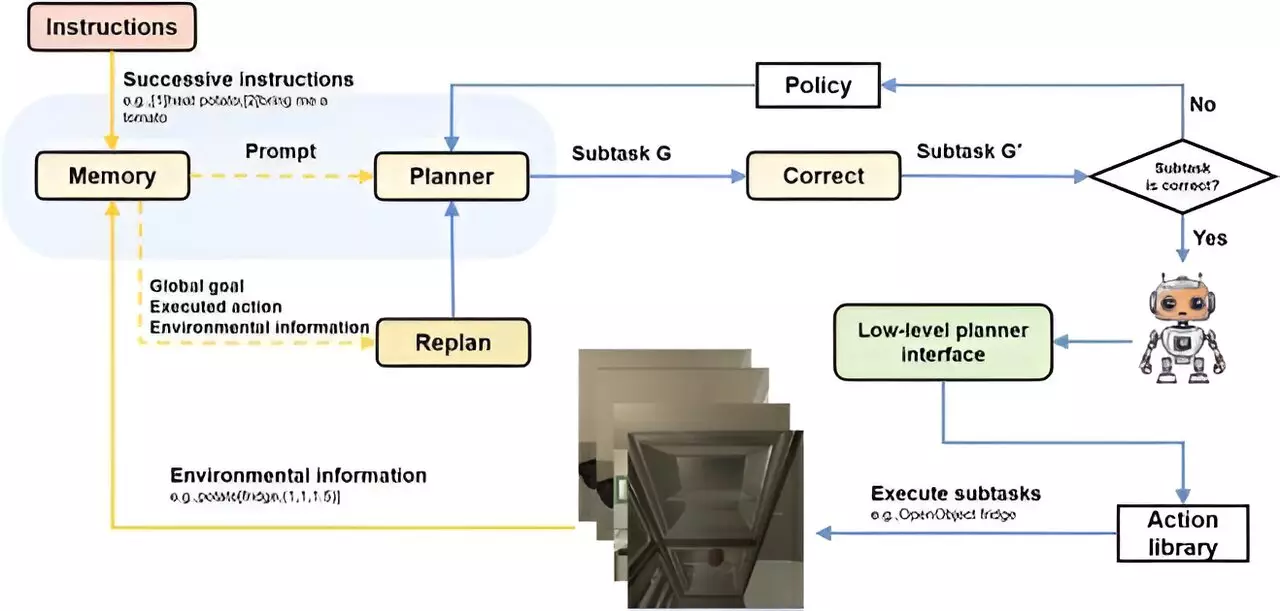Artificial intelligence continues to revolutionize the field of robotics, with researchers from Shanghai University unveiling a groundbreaking new framework known as “Correction and Planning with Memory Integration” (CPMI). This innovative approach leverages large language models (LLMs) to enhance the way robots interpret and carry out complex tasks. Unlike traditional methods that rely on explicit programming and extensive data, the CPMI framework integrates memory and planning capabilities within LLMs, enabling robots to adapt and learn in real-time. Led by Yuan Zhang and Chao Wang, the research team has paved the way for a new era of AI-driven robotics.
The most notable feature of the CPMI framework is its incorporation of a memory module, allowing robots to remember and learn from past tasks. This human-like capability enables robots to operate more efficiently over time and quickly adapt to new challenges. By breaking down complex instructions into actionable steps, planning effectively, and correcting errors on the fly, robots equipped with the CPMI framework outperform traditional models in “few-shot” scenarios. This transformative approach not only enhances task efficiency but also reduces the need for extensive pre-programming and data collection.
The potential applications of the CPMI framework are vast and varied, spanning from domestic robots assisting with household chores to industrial robots navigating complex manufacturing processes. As LLMs continue to advance, CPMI-equipped robots are poised to become more autonomous and intelligent. The Shanghai University team is enthusiastic about the future of robotic technology and is dedicated to further refining their framework. With ongoing efforts to enhance memory capabilities and test the framework in diverse environments, the team believes that CPMI technology has the potential to revolutionize decision-making processes across various fields.
The research conducted by the Shanghai University team not only establishes a new benchmark for AI in robotics but also paves the way for the seamless integration of advanced AI technologies into everyday life. With the continued development and refinement of frameworks like CPMI, the vision of intelligent, adaptable robots performing a wide range of tasks autonomously is rapidly becoming a reality. As the capabilities of AI-driven robotics expand, the possibilities for innovation and advancement in various industries are limitless. The future holds a promising landscape where robots equipped with CPMI technology lead the way in efficient task execution and decision-making.
The CPMI framework represents a significant step forward in the field of robotics, merging advanced AI technologies with real-time adaptability and efficiency. By leveraging the power of memory and planning within a single framework, robots are not only capable of learning from their experiences but also continuously improving their decision-making processes. As researchers continue to push the boundaries of innovation, the future of robotics looks brighter than ever, promising a new era of intelligent and autonomous machines that can revolutionize numerous industries.


Leave a Reply